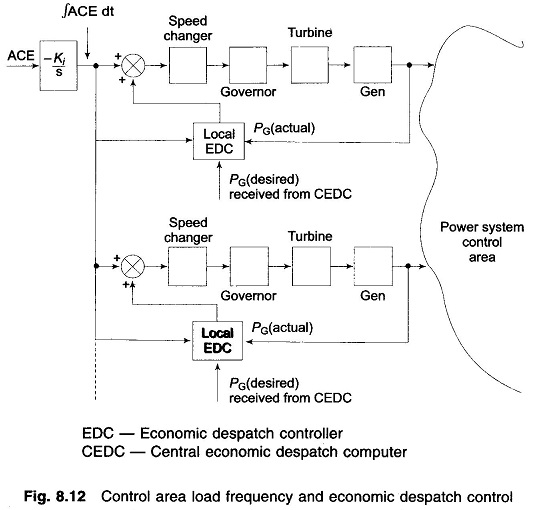Load frequency Control and Economic Dispatch Control:
Load frequency control with integral controller achieves zero steady state frequency error and a fast dynamic response, but it exercises no control over the relative loadings of various generating stations (i.e. economic dispatch) of the control area. For example, if a sudden small increase in load (say, 1%) occurs in the control area, the load frequency control changes the speed changer settings of the governors of all generating units of the area so that, together, these units match the load and the frequency returns to the scheduled value (this action takes place in a few seconds).
However, in the process of this change the loadings of various generating units change in a manner independent of economic loading considerations. In fact, some units in the process may even get overloaded. Some control over loading of individual units can be exercised by adjusting the gain factors (Ki) included in the signal representing integral of the area control error as fed to individual units. However, this is not satisfactory.
A satisfactory solution is achieved by using independent controls for load frequency and economic dispatch. While the load frequency controller is a fast acting control (a few seconds), and regulates the system around an operating point; the economic dispatch controller is a slow acting control, which adjusts the speed changer setting every minute (or half a minute) in accordance with a command signal generated by the central economic dispatch computer.
Figure 8.12 gives the schematic diagram of both these controls for two typical units of a control area. The signal to change the speed changer setting is constructed in accordance with economic dispatch error, [PG (desired) — PG (actual)], suitably modified by the signal representing integral ACE at that instant of time. The signal PG (desired) is computed by the central economic dispatch computer (CEDC) and is transmitted to the local economic dispatch controller (EDC) installed at each station. The system thus operates with economic dispatch error only for very short periods of time before it is readjusted.
